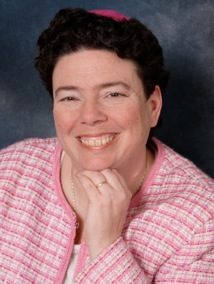Commentary on Parshat Masei (Numbers 33:1 – 36:13)
When I take my dog to the dog park, he loves to run from picnic table to picnic table and dive underneath them, seeking shade and safety. The picnic tables are a safe zone, a refuge, a sanctuary.
Between 1980 and 1991, nearly one million Central Americans fled from political repression and violence in Guatemala, El Salvador and Nicaragua. They came seeking political asylum, freedom, and a better life. Many churches and synagogues responded to this humanitarian crisis by becoming part of the Sanctuary Movement, a religious and political campaign to provide a safe haven for refugees fleeing civil conflict.
This is not history. This is no picnic at the dog park. We once again have a humanitarian crisis on our southern borders. At last count, 80,000 unaccompanied children fleeing Mexico, Guatemala, Honduras, and other Central American countries have arrived, seeking a place of refuge from unspeakable poverty and violence.
How do we respond to this as a country? By putting children in detention camps and jail? By dropping them off at central bus stations, hoping that they will just move along and reunite with other family members spread out across the country? By sending them back?
There is a glimmer of hope. Once again, we are seeing religious communities reach out and provide shelter and demand comprehensive immigration reform. In border communities like Tucson, we are seeing groups like Casa Mariposa work directly with immigrants to locate family and to provide basic nutrition. My sister-in-law is volunteering with Casa Mariposa. My brother-in-law is an immigration attorney. This is not new work to them. They have been on the front lines before. They continue to do this work because it is the right thing to do, because the United States’ borders were closed to Jews during World War II. And because it fits with this week’s Torah portion.
This week’s portion (Masei) talks about establishing six cities in the land of Israel for sanctuaries, to provide a place of refuge for someone who committed an accidental killing. The privilege of sanctuary was not limited to the people of Israel but must be granted to the stranger and sojourner. (Numbers 35:15)
The word, miklat, has come to mean shelter—the very word for the bomb shelters that Israelis rush to during a red alert. As we continue to monitor “The Situation” in Israel carefully and pray for peace, it was tempting to write this D’var Torah about the current crisis. However, I did not want the crisis on our own southern border to be forgotten.
According to the Torah, cities of refuge were set up to protect the accidental killer. Like much of Jewish law, the halacha of sanctuary cities changed over time. These changes may provide a model of how to provide refuge to the most vulnerable among us today:
- They provided political asylum to Adonijah in King Solomon’s time. (I Kings 1, 2)
- They could only be used as asylums with the consent of the inhabitants. (Makkot 10a)
- There must be signposts to mark the way, and wide roads to make it easy to arrive. (Makkot 10b)
- The cities must not be too big or too small. (Makkot 10a).
- The mother of the high priest was tasked with feeding and clothing the refugees. (Makkot 2:6)
- If a rabbi needed sanctuary, his students must go with him and vice versa.
- The location could vary based on political conditions and changing boundaries. (Sifre Numbers 161)
The rabbis wisely saw the multiple aspects of sanctuary. For political asylum. To provide safety and protection. The chance to rebuild lives and become productive members of society again. And spiritual nourishment.
That’s why it was the high priest’s mother who provided the food, and why the rabbi had to go with his student. Torah study itself is a refuge. We learn the famous dictum, “Much have I learned from my teachers, even more from my colleagues, and the most from my students” from this very section of Talmud. (Makkot 10a)
If you think these laws no longer apply because there is no longer the Temple in Jerusalem, Maimonides teaches that in the future it will be necessary to add more cities. (Hilkhot Rotze’ah u-Shmirat ha-Nefesh, 8.4). It seems we are again at that time, where we need more cities of refuge.
Join me and my Tucson relatives on the frontlines of providing for our most vulnerable and fighting for immigration reform. Then we will live out this week’s Torah portion and the words of Emma Lazurus: “Give me your tired, your poor, your huddled masses yearning to breathe free.”
Rabbi Margaret Frisch Klein is the rabbi of Congregation Kneseth Israel in Elgin, IL. The heart of the Jewish community of the Fox River Valley for more than 120 years, CKI is fiercely independent, providing meaningful observance, lifelong learning, community and diversity. Rabbi Frisch Klein is active in social justice causes and blogs as the Energizer Rabbi. http://www.theenergizerrabbi.org

